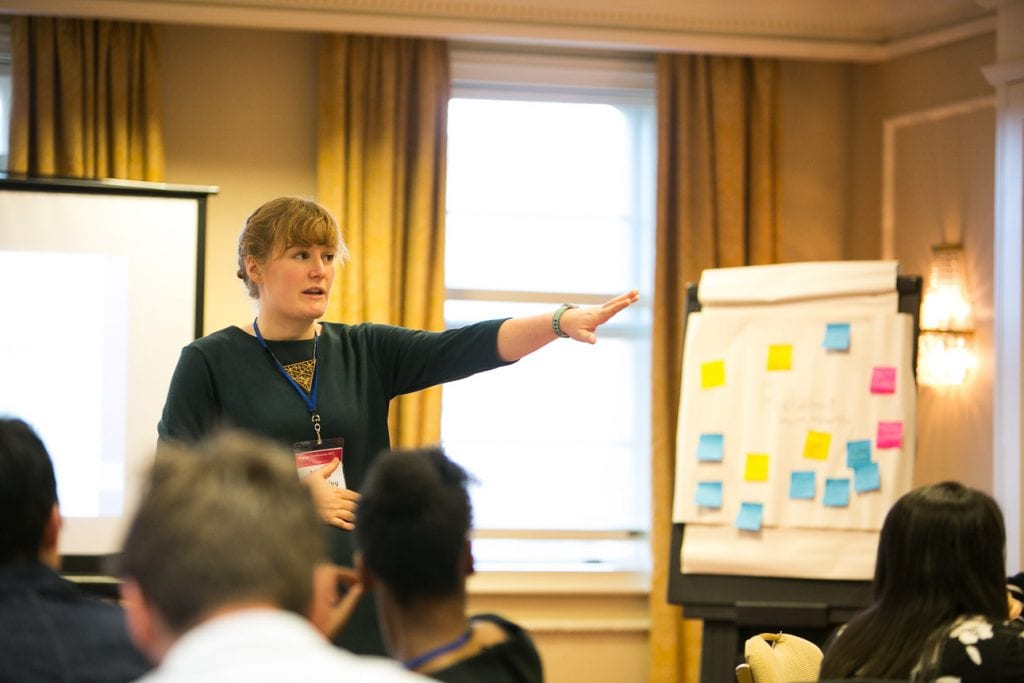Engaging ideas: thoughts from the annual public engagement conference
By Lizzy Baddeley, on 18 December 2017
Last week, the whole of the Public Engagement Unit descended on Bristol for the annual Engage conference, run by the National Coordinating Centre for Public Engagement (NCCPE). This is a big event in the public engagement world, as it’s one of the few times we get together as a sector to talk about what we have done, ideas for the future and to share best practice.
It’s also a time when we (the UCL Public Engagement Unit), are able to get some perspective on how engagement is going at UCL compared to other universities. Normally this is pretty good. We are lucky that we have engagement written into UCL’s 2034 strategy, support from senior leadership and the resource to have such a large team (there are currently 9 of us). A lot of our colleagues work alone or in teams of two or three, and have much less institutional buy in.

For me, a few key themes came out of the conference this year that I think reflect the mood of the public engagement sector more generally:
- How to begin collaborations on shared ground
This was a key theme – how to ensure that collaborations between researchers and external communities and partners start off truly equal, and that they are not dominated by the needs or ideas of the researchers. A number of the sessions focused specifically on this, and sharing toolkits for how to set this up. For example Christian Aid shared their Rethinking Research Partnerships toolkit, which really challenged me to think about the questions we should ask each other at the start of projects.
- Holistic engagement
Chancellor of Rutgers University, Newark, Nancy Cantor, gave a really inspirational plenary, challenging delegates to think about universities as an ‘anchor institution’. Rutgers are working to integrate and prioritise their local community into all aspects of the university – from service procurement to student recruitment – as well as embedding engagement into research and teaching.
For me, this was a real challenge to the idea of public engagement being something different to other forms of collaboration with communities, like widening participation, policy engagement, community volunteering. In UCL, like most universities, these teams all sit separately, report to different parts of the organisation and working collaboratively requires overcoming internal barriers. However, the philosophy of public engagement is not unique to our ‘sector’, but is true for all these forms of engagement – we all want to create mutual benefits for universities and communities – it just takes different forms.

Lizzy presenting during a session on training
- Impact from Engagement
An increasing priority, thanks to the Research Excellence Framework (REF), there were a number of discussions about the necessity to demonstrate impact from engagement. As an engagement professional, it’s obvious to me that engagement is impactful – both on the community partner and the university and researcher – but the challenge comes from demonstrating a long term sustainable change. What if the interaction leads to feelings of empowerment or inclusivity? How are those measured, tracked and captured?
At a time when UCL generally, and our team in particular, is thinking about the opportunities at our new campus (UCL East), all these themes are really relevant. Minna Ruohonen, the Public Engagement Manager East, is leading on this part of our work. We are also in the early stages of planning a centre for coproduced health research with funding UCL has from the Wellcome Trust and Niccola Hutchinson-Pascal, the Project Manager, is working out how to do this in a way which is truly collaborative and that ensures all partners operate on a level playing field in terms of power to influences decision making right from the start.
It’s really great to have a chance to take time to learn from others in our industry and hear what is being tried, what’s worked, and also what hasn’t. Now we need to put it into practice! If you have ideas on what we should do, or want to get involved, get in touch!
Lizzy Baddeley is a Public Engagement Coordinator at UCL and specifically supports Arts and Humanities and Social Science researchers. She also leads on our training programme and team communications.
 Close
Close


